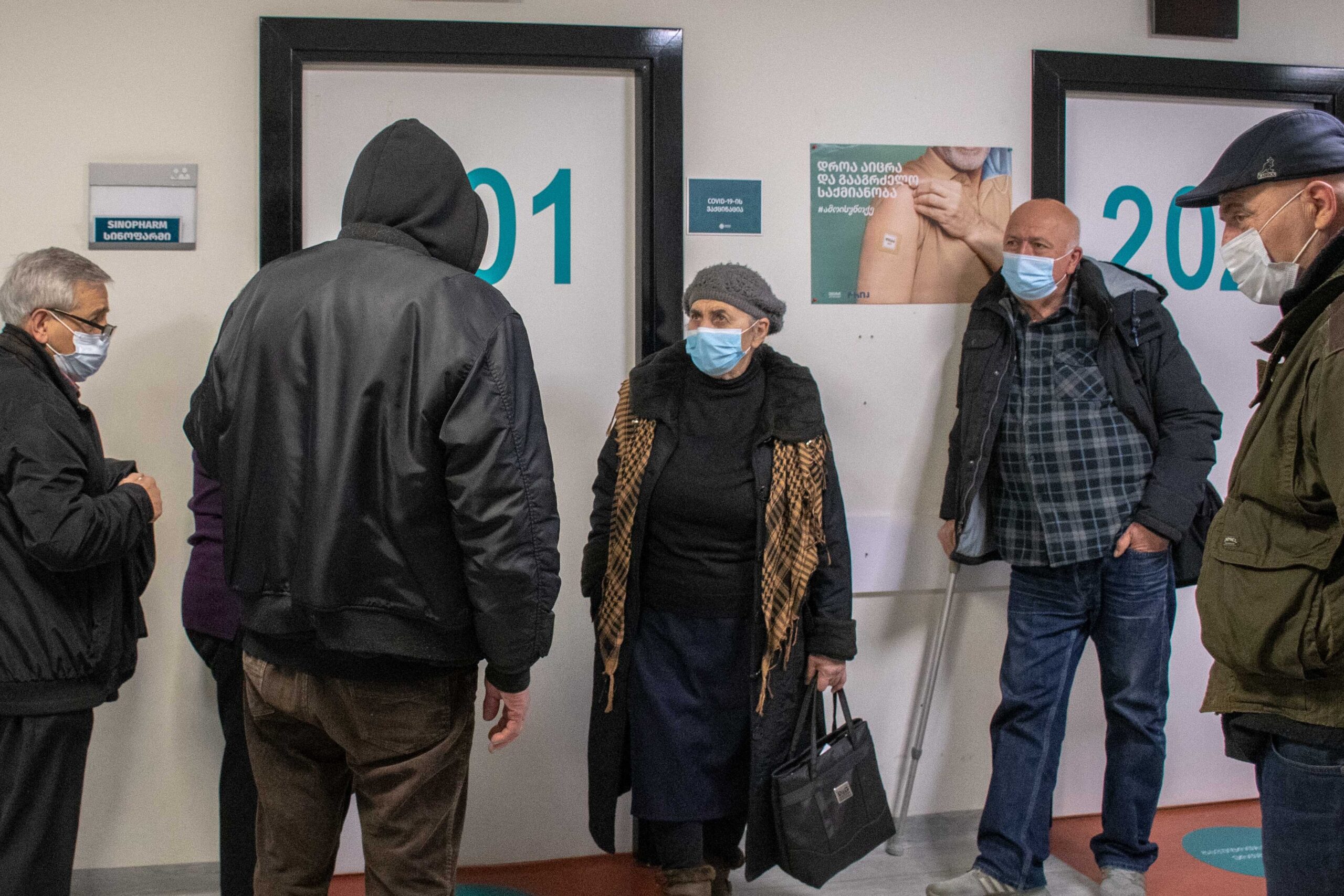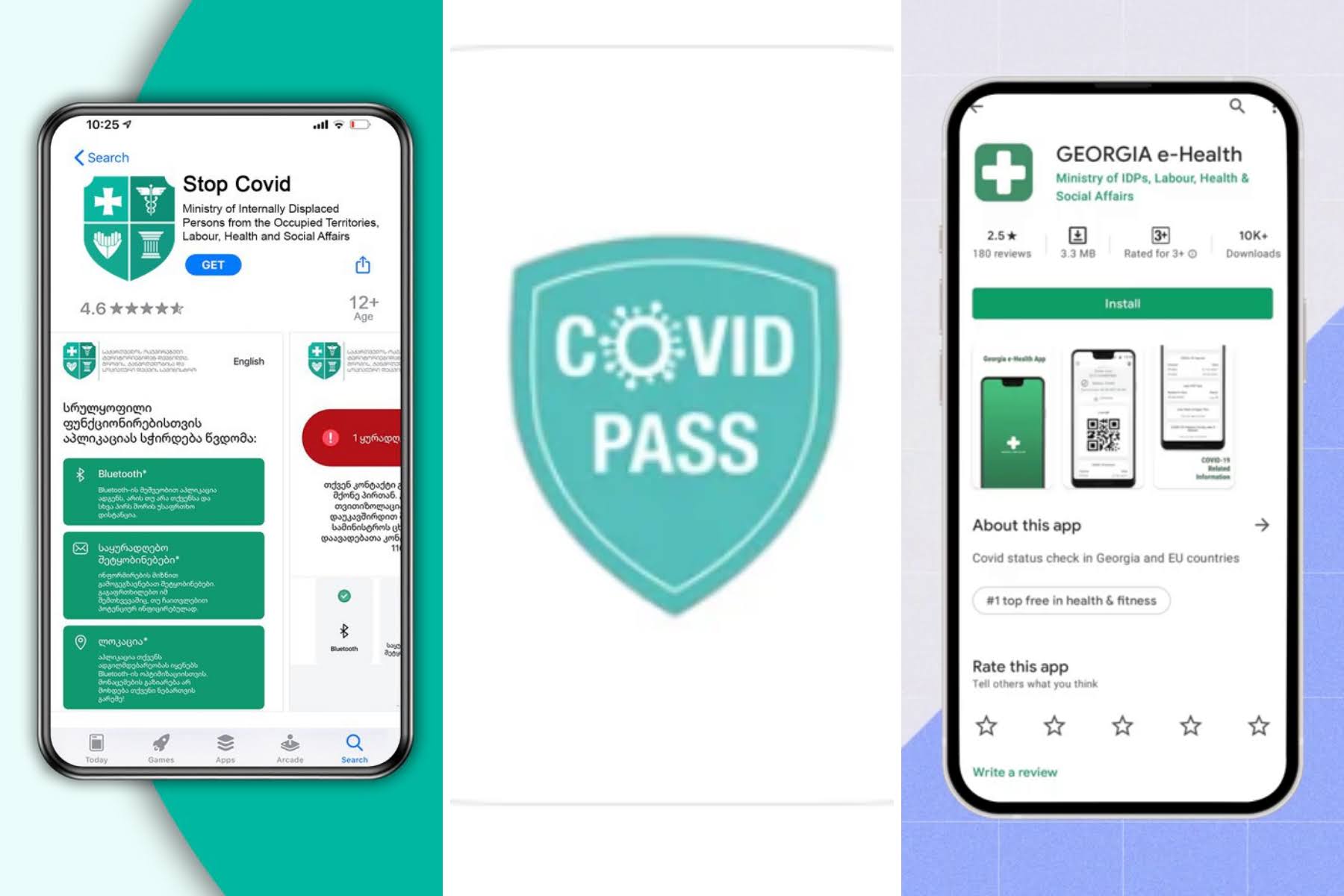
Despite stagnating vaccination rates, Georgian authorities have introduced a ‘compromise’ version of the Green Pass, a COVID-19 passport system that, contrary to international practice, has made all those who had recovered from the virus eligible to receive it.
On 3 December, Georgian Health Minister Ekaterine Tikaradze was grilled again by the media for the new Green Pass system.
As of December almost all public spaces in Georgia, with the exception of grocery stores and public transport, are obligated to digitally check the status of visitors and refuse those without a ‘green’ status — which status indicates that a person has either been vaccinated, has had a negative PCR test result done within the previous 72 hours, or a has had negative antigen test result within the previous 24 hours.
Businesses found to be violating the mandatory status checks face a fine of ₾10,000 ($3,200), unless the business is run by a single proprietor in which case the fine is ₾2,000 ($640).
This weekend, bars, restaurants and eateries are bracing for an influx of evening visitors as authorities have also lifted restrictions that mandated a closing time of 23:00.
What has made the new Green Pass system controversial, however, has been the designation of those who had previously had COVID-19, permanently eligible for a Green Pass.
This decision has effectively made all 800,000 people, who had caught the virus since March 2020, eligible for the Green Pass — removing a key incentive for vaccination against a virus that has already shown a significant capacity for reinfection.
‘A very serious mistake’
Citing the new Omicron variant of COVID-19, Tikaradze floated the idea of shortening the time period during which tests grant a green status and expanding Green Pass restrictions to public transport.
While not ruling it out, Ekaterine Tikaradze still stopped short of promising to change the government’s permanent green status for people who have recovered from COVID-19. She defended the ‘compromise’ by alleging that the public were fatigued with restrictions, something that according to her, sparked ‘resistance’ to health regulations.
Detractors of Georgia’s ‘soft’ COVID-19 passports include Bidzina Kulumbegovi, a prominent immunologist-allergist campaigning for mass inoculation, and Tengiz Tsertsvadze, the director of the Infectious Diseases Hospital who had previously advocated for making vaccination mandatory for several professional groups, including medical workers and teachers.
[Read more on OC Media: Georgian PM ‘won’t allow’ compulsory vaccination]
On 1 December, Tsertsvadze described granting green passes to anyone who had previously had COVID-19 as a ‘very serious mistake’.
Ivane Chkhaidze, medical director of Tbilisi’s Iashvili Central Children’s Hospital also joined the chorus of criticism.
‘[COVID-19] is not measles. Measles is a disease [which you] recover from and you are free [from it] for life’, Chkhaidze warned on 25 November.
Since starting mass immunisation against the virus on 18 March, only 35% of adult Georgians have been fully vaccinated, while 41% have received only one dose.
[Read more on OC Media: How Megi Bakradze’s death affected vaccine hesitancy in Georgia]

Two COVID passports, three mobile apps
On 17 November, the Georgian government’s vaccine passport system was integrated into the EU Covid Certificate system, a club of over 50 countries including 22 EU member states, as a result of which vaccinated Georgians became eligible for common certification.
Alongside Georgia’s entry into the EU Covid Certificate system, authorities also introduced an accompanying Georgia e-Health application that was available on the Apple App Store and Google Play.
Georgia’s new ‘soft’ COVID passports however, are tied to the separate CovidPass application released by the Georgian authorities which, as it has different designations for what marks a person as having ‘green’ status has been dubbed as a ‘domestic’ system.
Georgian Health Minister Ekaterine Tikaradze caused some public outcry on 25 November after she explained, apparently in jest, that Georgians had two systems because they were ‘special’.
‘All this stems from our genetics and our character’, Tikaradze said.
The Georgian Health Minister also justified the parallel systems with the need for a ‘gradual’ introduction of ‘changes’.

CovidPass is the third COVID-19 related application released by the Georgian government. In January 2021, nine months after its launch, Georgian authorities deactivated the Stop Covid, the country’s first anti-COVID-19 app, which was intended to help in breaking chains of COVID-19 transmission based on location tracking.
The Health Ministry reported the first mobile application cost Georgia ₾410,000 ($135,000) and was funded through aid from the World Bank’s Emergency Response to COVID-19.
The latest two mobile applications, the Ministry informed OC Media, were developed through the Ministry’s ‘internal resources’.
Additional reporting by Tata Shoshiashvili.









